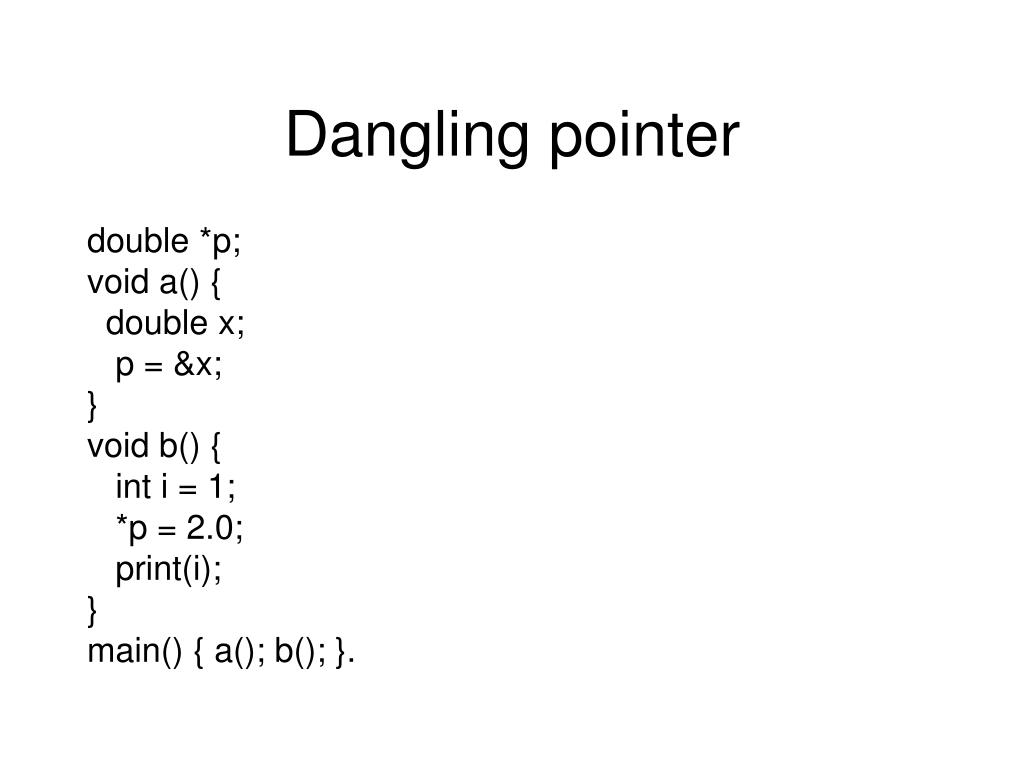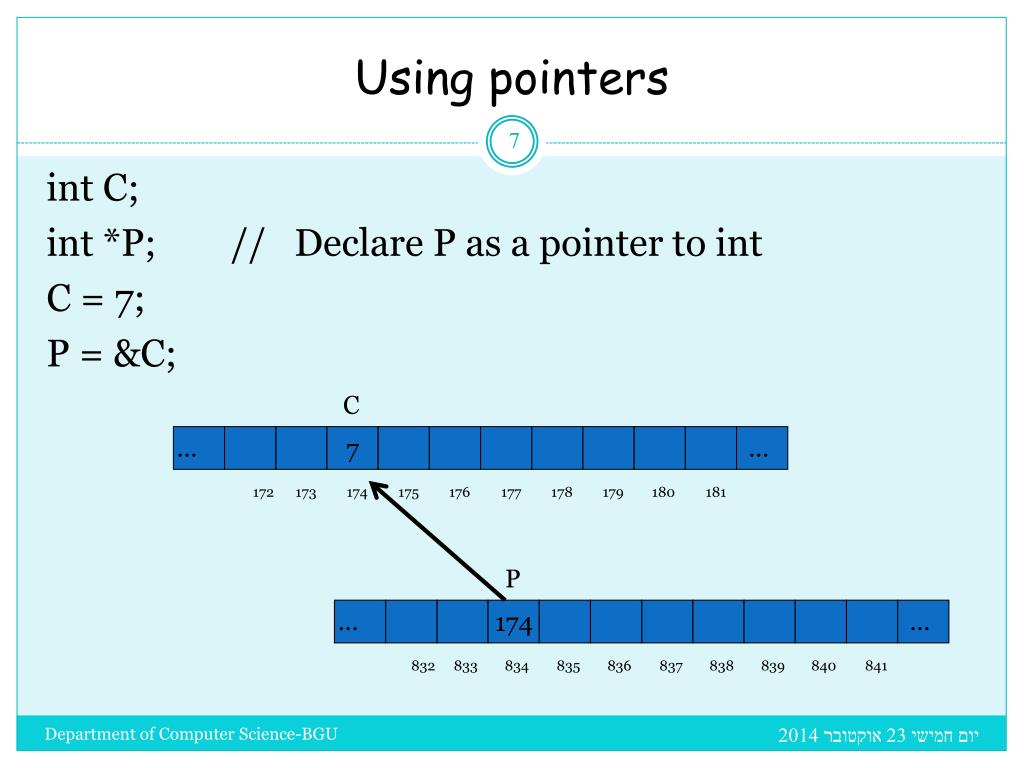
If you want to have a list of characters (a word), you can use char word. These addresses are returned by the address of the operator are known as pointers because they point to the variable in memory. Why use double indirection or Why use pointers to pointers c pointers. Let see an example, In the below example, I am creating an integer pointer (iPtr) and using this printer I am accessing an integer variable (data). The address operator is working for returns the memory address of a variable. So we require mainly three steps to use the pointers in the programs these are mentioned below. In 64-bit targets, that is worth 8 bytes. Recall that all pointer types that hold Sized targets have the same size as a usize. What I need is a means of spawning actual variables with the name of the string within the first variable, and the value contained within the second. It must be noted, however, that the compiler may optimize the double indirection, but the same cannot be said about memory usage. This kind of access is done by using the indirection operator. CTestHarnessApp pTheApp &theApp CTestHarnessApp pTheApp This, supposedly, declares a pointer to an object of the same type. Try using (xIRQaddr)() instead of xIRQaddr(). In C, we can access the value to which the pointer variable is pointing. indirection from error whenever I compile this: CTestHarnessApp theApp This declares an object, supposedly.

It operates on a pointer variable, and returns an l-value equivalent to the value at the pointer address.This is called 'dereferencing' the pointer. one with a single operand) found in C-like languages that include pointer variables. Then the address operator is used to know the location or the address of the data using the “name” variable. I am currently parsing through a body of key/value pairs which are read into an array token0, token1 respectively. Multiple pointers require using a before each variable declaration. The function call operator has higher precedence than the indirection operator. In computer programming, the dereference operator or indirection operator, sometimes denoted by '' (i.e.

You need to decide if the pointers are single indirection () or double Question: In C Write a function called copyList(), which makes a 'deep' copy or complete copy of one singly linked list. Conduct parameter passing by reference such as name. The function should accept two parameters: a pointer to the source list and a pointer to the copy list.While displaying the address of the variable we used ampersand operator.Īddress operators commonly used for 2 purposes:.While scanning the user input we used ampersand operator.To access the target value indirectly pointed to by a pointer to a.

Printf("\nNao ha pedidos na fila de espera. Now lets take a example of multiple indirection. Can you help me to fix this error, please? If you don't understand anything in the code, say it.Įrror C2040: 'CancelarPedido' : 'ppedido (ppedido)' differs in levels of indirection from 'int ()' printf("\nIntroduza opcao:") Ĭase 2: lista = CancelarPedido(lista) break Ĭase 3: printf("Falta implementar a funcao.") break Ĭase 4: printf("Falta implementar a funcao.") break
#Double indirection in c code
This code is giving me this error, which I don't understand.


 0 kommentar(er)
0 kommentar(er)
